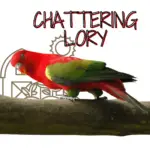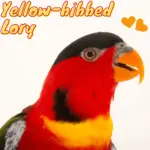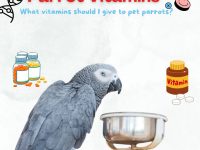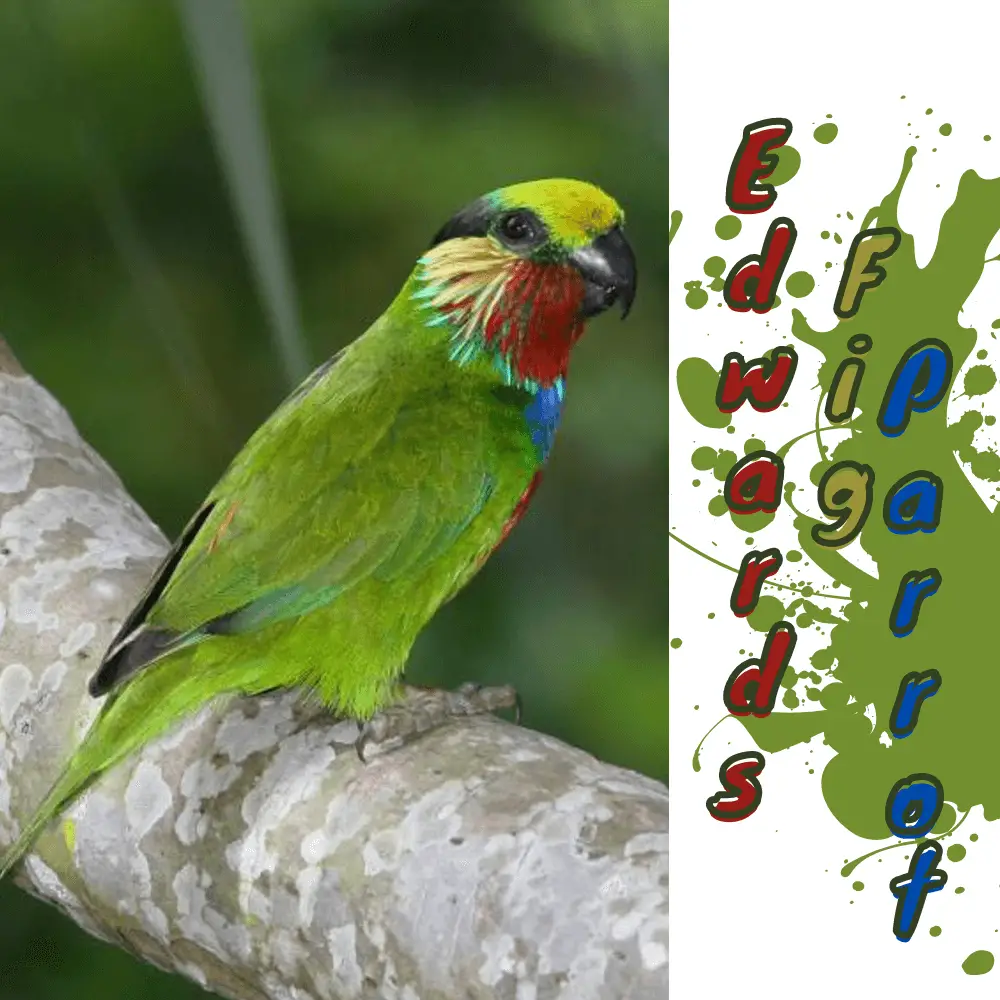
Edwards Fig Parrot 18 cm; 105 g. Forehead and mid-crown bright green, isolated by broad black line through the eye to hind crown and nape; elongated feathers of anterior face red, posterior (ear-coverts) yellow with some pale blue;
broadband on upper breast blue-black; lower breast to belly red, with green flanks, thighs, vent, and under tail-coverts; back, wings, and tail dull green, with innermost tertials, edged orange-red; underwing bar yellow.
Edwards Fig Parrot Female lacks red on the breast. Immature-like female with anterior face yellow.
Systematics History
Monotypic.
Subspecies
Monotypic.
Distribution
NC & NE New Guinea from Yos Sudarso Bay E to Huon Peninsula.
Habitat
Lowland and hill forest and edge, also partly cleared land.
Diet and Foraging
Edwards Fig Parrot Figs are the only certainly recorded food; other reports are of fruits of casuarinas and other trees; birds sometimes feeding in large flocks.
Sounds and Vocal Behavior
Not well documented. Edwards Fig Parrot Calls include a double-noted “screet-screet”, heard both in flight and when perched, and a short metallic “ksit!”.
SOURCE:obirds
Breeding
Apparent nest-site occupation observed, Jan–May; juvenile collected in Jul; courtship and nest prospection in Oct. Presumed nest-sites were small holes high in tall trees.
Conservation Status
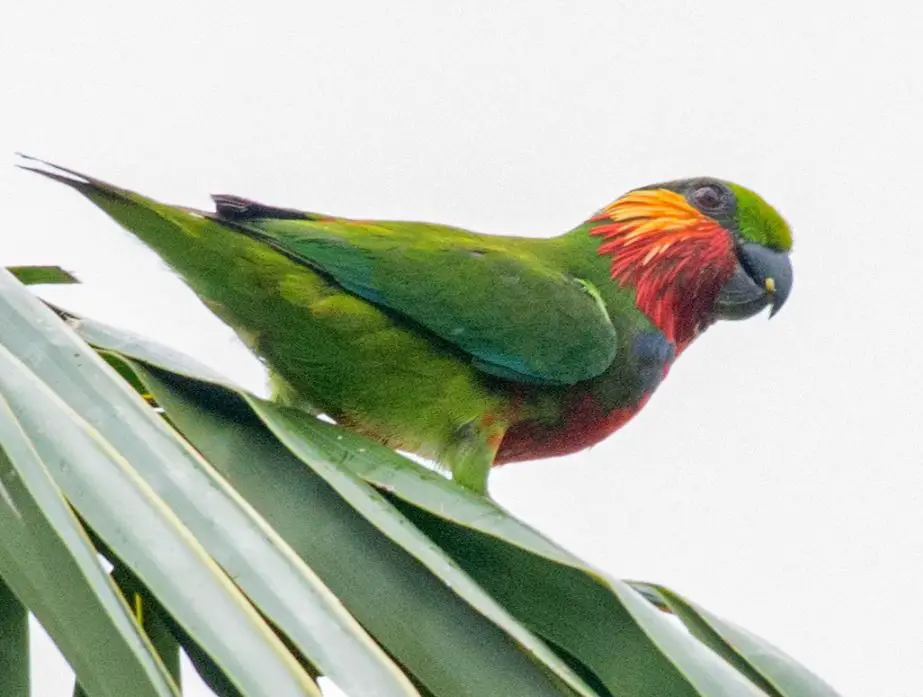
Not globally threatened. CITES II. A BirdLife “restricted-range” species. Locally common to very common, with as many as 400 recorded in a foraging flock.
A total of 2851 birds were exported by Indonesia in the period 1985–1990, a level of trade not judged to be prejudicial to the security of this species; however, its commercial importation into the EC from Indonesia was prohibited in Nov 1987.

